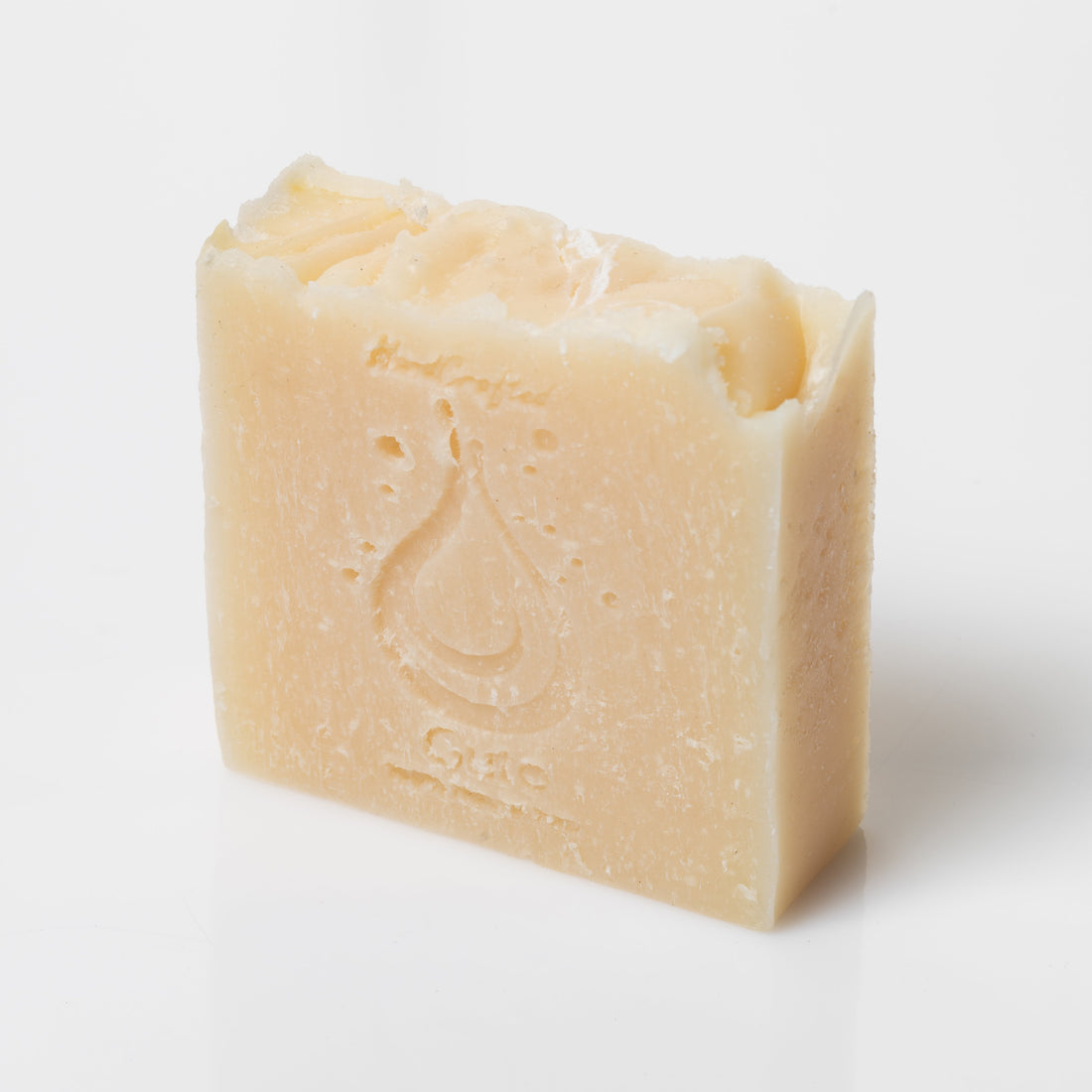
Exploring the Natural Essence of Soap: Facts Without Embellishment
Share
Exploring the Natural Essence of Soap: Facts Without Embellishment
When we say our soap is natural, we mean it. All the ingredients we use come from natural sources. If it’s a plant, mineral, vegetable, or products like honey or milk, then it’s natural. For example, we use cocoa butter and shea butter, which we transform into solid soap.
Vegetarian Soap: Free of Unwanted Chemicals
Our soap is perfect for those embracing a vegetarian lifestyle. It contains no animal fats, artificial dyes, or other unwanted components. But you might wonder: how do we turn liquid oils, like the ones you use on salads, into solid soap? The answer lies in a process called saponification.
How Does Saponification Work?
Saponification is a chemical reaction where oils are transformed into soap. For this, an alkali is required – in our case, sodium hydroxide (NaOH). Without it, soap simply cannot be made. However, it’s essential to understand that no traces of sodium hydroxide remain in the final product. What’s left are just the salts of the oils (soap) and a natural moisturizer – glycerin.
Why Isn’t Sodium Hydroxide Listed as an Ingredient?
Regulations require us to list all ingredients using the international INCI system. Sodium hydroxide is not listed as a separate ingredient because it reacts completely during saponification and becomes part of the soap compounds. For instance, olive oil turns into Sodium Olivate, and coconut oil becomes Sodium Cocoate. It's all clear and transparent.
What Makes Our Soap Different?
Many brands of so-called “natural” soap include additives that appear natural but are actually lab-made. These might be artificial dyes or synthetic fragrances. We don’t use such things. Our soap contains only what nature provides: Dead Sea mud, herbs, plant-based oils, and extracts.
How Do We Make Our Soap?
Our process goes beyond traditional “cold process” soap making. We avoid overheating the oils to preserve their natural properties. The finished soap is air-dried for up to six weeks, ensuring top quality without disrupting natural processes.
Does Soap Grow in Nature?
Not exactly. However, there are plants that contain natural saponins – substances that create foam and can be used for cleaning. For example, yucca roots or horse chestnut seeds. These were used for washing in the past. But let’s face it, a well-crafted bar of soap is much more convenient.
In Conclusion
Our soap is not just a natural product; it’s the result of a meticulous process where every detail is taken into account. No artificial additives, no questionable ingredients, no shortcuts. Just nature, honesty, and attention to detail – for your skin and your enjoyment.







